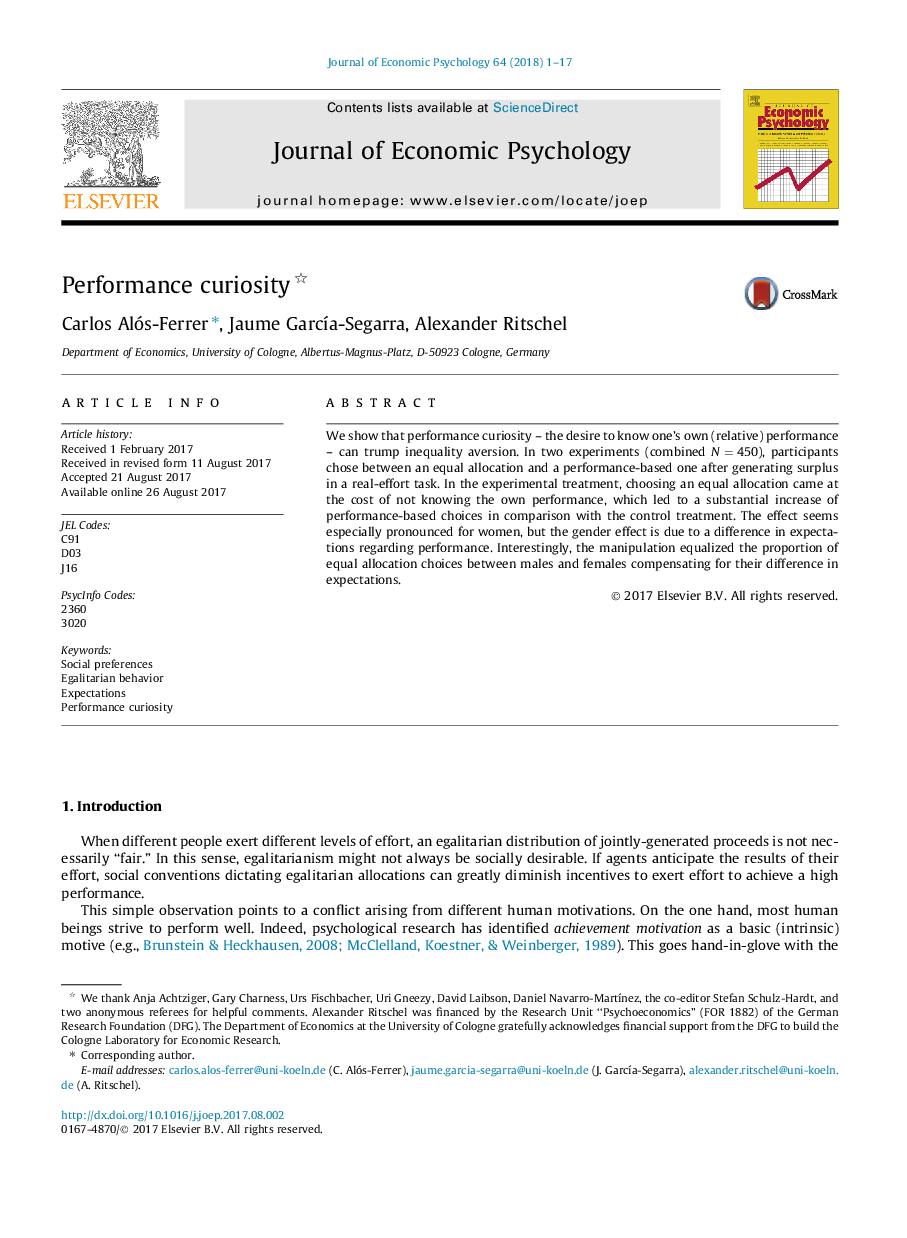| Article ID | Journal | Published Year | Pages | File Type |
|---|---|---|---|---|
| 7244062 | Journal of Economic Psychology | 2018 | 17 Pages |
Abstract
We show that performance curiosity - the desire to know one's own (relative) performance - can trump inequality aversion. In two experiments (combined N=450), participants chose between an equal allocation and a performance-based one after generating surplus in a real-effort task. In the experimental treatment, choosing an equal allocation came at the cost of not knowing the own performance, which led to a substantial increase of performance-based choices in comparison with the control treatment. The effect seems especially pronounced for women, but the gender effect is due to a difference in expectations regarding performance. Interestingly, the manipulation equalized the proportion of equal allocation choices between males and females compensating for their difference in expectations.
Related Topics
Social Sciences and Humanities
Business, Management and Accounting
Marketing
Authors
Carlos Alós-Ferrer, Jaume GarcÃa-Segarra, Alexander Ritschel,
